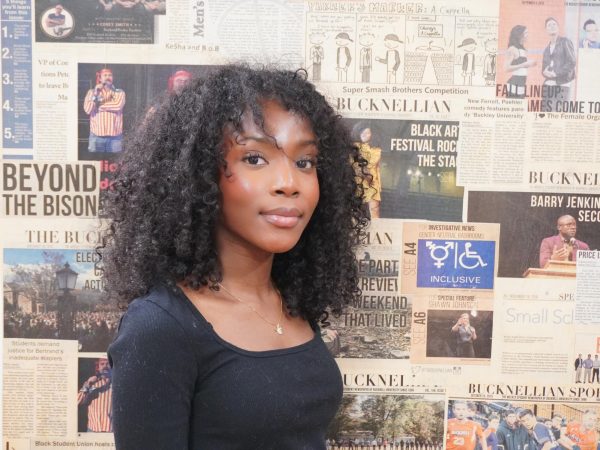Danez Smith is incredible.
No words can truly capture how powerful and moving their reading was in that hollow chapel room Tuesday night. Every line delivered felt like a pulse, a raw and unfiltered expression of a journey decorated with pain, joy and survival. It wasn’t just the words themselves, but the way Smith delivered them—each pause, each breath carrying the weight of stories untold and voices yearning to be heard.
Their reading of “less hope,” born from the reception of their popular poem, “dear white america,” felt like a direct confrontation with the constant commodification of their identity. The poem, delivered with palpable emotion, responded to how their most recognized work had been consumed and repurposed by the very audiences it critiqued. In “less hope,” Smith wrestles with the painful realization that their voice, their pain, had become something for others to package neatly, stripping it of its urgency and rawness.
Where “dear white america” was a searing, unapologetic message about systemic racism and surviving, “less hope” became the aftermath—a reckoning with how those same bold declarations can be diluted and turned into a marketable performance. Undeniably, I could feel this tension as they read. Smith laid bare the weight of being seen as a symbol of change, yet having to navigate the ways in which their own identity was commodified and repackaged for mainstream consumption without addressing the deeper issues as its core.
It’s not just a poem but a declaration of exhaustion and a plea for something more than recognition and applause.
They do this again in “last black american poem,” another powerful reflection on their previous work, “my president,” which had been a hopeful address to the election of President Barack Obama. “my president” brimmed with optimism, a celebration of the possibility of real, transformative change, was within reach. It was a momentary relief, a vision of hope for a future where Black people could finally breathe a little easier, feeling seen and represented at the highest levels of power.
But “last black american poem” is a sobering counterpoint to that hopeful reflection on all the things that have remained unchanged in the years since. The promises that so many clung to during Obama’s presidency were overshadowed by the same harsh realities: systematic oppression, police brutality and persistent injustice. It remained untouched by the symbolism of progress. Smith interrogates the disappointment that Black Americans continue to endure.
The question then remains, how does one escape this cycle of stagnancy, even when advances for change are being made?
Smith’s poetry doesn’t offer us easy answers, but it urges us to keep questioning, to remain restless in the face of complacency. Escaping the cycle of stagnancy might lie in refusing to settle for symbolic victories, instead demanding substantive shifts that touch every level of society. It’s about recognizing that change isn’t a linear path but a continuous struggle that requires more than hope.
During the reading, Smith said, “The future that we all deserve requires us to dream outside of the existing structures.” And that’s how we do it, by dreaming and finding ways to keep the dream alive. Whether it’s through personal perseverance or communities of allies, we must do all we can to make sure that dream somehow, someway becomes a reality. It’s not enough to operate within the frameworks of perpetuated inequity; rather, we must envision entirely new ways of existing, of relating to each other and building systems that don’t just accommodate but empower.




















